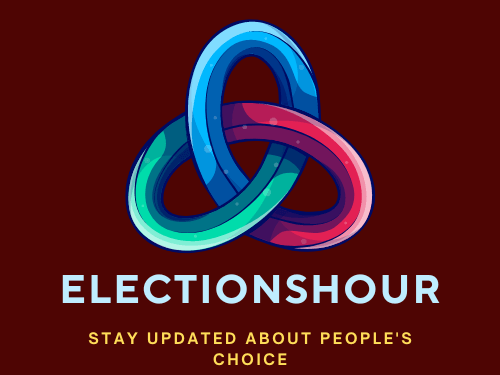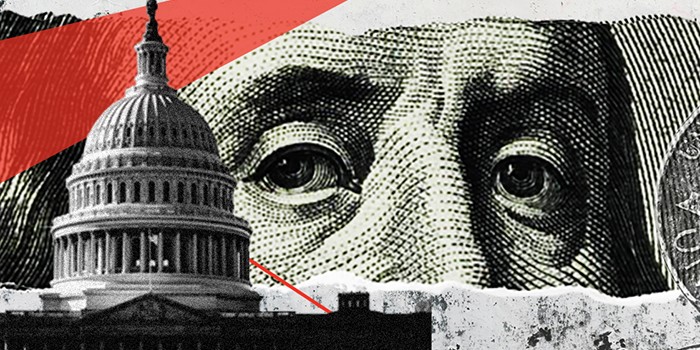U.S. Presidential Election Funding Source And Transparency: The United States holds a presidential election every four years. It’s a big event where people choose their next leader. But have you ever wondered where the money for these campaigns comes from? This article will help you understand the funding sources and why transparency is important.

Credit: bfi.uchicago.edu
What is Election Funding?
Election funding is the money candidates use to run their campaigns. This money pays for advertisements, rallies, travel, and more. Without funding, candidates can’t reach voters effectively.
Types of Funding Sources
There are several ways candidates get money for their campaigns. Let’s look at the main sources:
- Individual Donations: People can give money to candidates. There are limits on how much one person can give.
- Political Action Committees (PACs): These are groups that raise money to support candidates. PACs have limits on how much they can give directly to a candidate.
- Super PACs: These groups can raise unlimited amounts of money. However, they can’t give money directly to candidates or coordinate with them.
- Party Committees: Political parties can raise money to support their candidates.
- Public Funding: The government can give money to candidates. But, candidates must agree to certain spending limits.
Why is Transparency Important?
Transparency means being open and honest about where the money comes from. It’s important for several reasons:
- Builds Trust: Voters need to trust that candidates are not influenced by secret money.
- Prevents Corruption: Transparency helps prevent illegal activities like bribery.
- Informs Voters: Knowing who supports a candidate helps voters make informed decisions.
How is Transparency Achieved?
There are rules and regulations to ensure transparency in election funding. Here are some key methods:
- Disclosure Laws: Candidates must report where their money comes from. This information is available to the public.
- Contribution Limits: There are limits on how much money individuals and groups can give. This helps prevent one person or group from having too much influence.
- Regular Audits: The Federal Election Commission (FEC) checks candidates’ finances. They make sure everything is legal and transparent.
The Role of the Federal Election Commission (FEC)
The FEC is a government agency. It oversees campaign finance laws. It ensures that candidates and donors follow the rules. The FEC has several important tasks:
- Enforcing Laws: The FEC investigates and punishes violations of campaign finance laws.
- Monitoring Donations: The FEC keeps track of all donations and expenditures.
- Educating the Public: The FEC provides information about campaign finance rules. They help people understand the importance of transparency.
Challenges in Ensuring Transparency
Ensuring transparency in election funding is not easy. There are several challenges:
- Dark Money: Some groups can spend money without disclosing their donors. This makes it hard to know who is influencing elections.
- Complex Laws: Campaign finance laws can be complicated. This makes it hard for candidates and donors to follow the rules.
- Limited Resources: The FEC has limited resources. This makes it hard to monitor all activities.

Credit: aapidata.com
Efforts to Improve Transparency
Despite these challenges, there are efforts to improve transparency. Here are some examples:
- Stronger Disclosure Laws: Some lawmakers are pushing for stronger laws. These laws would require more detailed reporting of donations.
- Public Pressure: Voters can demand more transparency. They can support candidates who are open about their funding.
- Technology: New technology can help monitor campaign finances. For example, online databases make it easier to track donations.
The Impact of Transparency on Elections
Transparency can have a big impact on elections. Here are some ways it affects the process:
- Informed Voters: Transparency helps voters know who is supporting candidates. This information can influence their choices.
- Fair Competition: Transparency ensures a level playing field. It prevents wealthy donors from having too much influence.
- Public Trust: When the process is transparent, people trust the election results more.
Frequently Asked Questions
What Are The Main Sources Of U.S. Election Funding?
U. S. election funding comes mainly from individual donations, political action committees (PACs), and public funding.
How Is Election Funding Regulated?
Election funding is regulated by the Federal Election Commission (FEC) to ensure transparency and limit corruption.
Why Is Transparency Important In Election Funding?
Transparency helps prevent corruption, ensures accountability, and maintains public trust in the electoral process.
Who Oversees U.S. Election Funding?
The Federal Election Commission (FEC) oversees and enforces laws related to U. S. election funding.
What Are Super Pacs?
Super PACs are political committees that can raise unlimited funds but cannot directly coordinate with candidates.
Conclusion
Understanding election funding and transparency is important. It helps ensure fair and honest elections. By knowing where the money comes from, voters can make better decisions. Transparency builds trust and prevents corruption. It’s a key part of a healthy democracy.
As we look to the future, it’s important to keep working on transparency. Stronger laws, public pressure, and new technology can help. Together, we can ensure that U.S. presidential elections are fair and transparent.


1 thought on “U.S. Presidential Election Funding Source And Transparency”